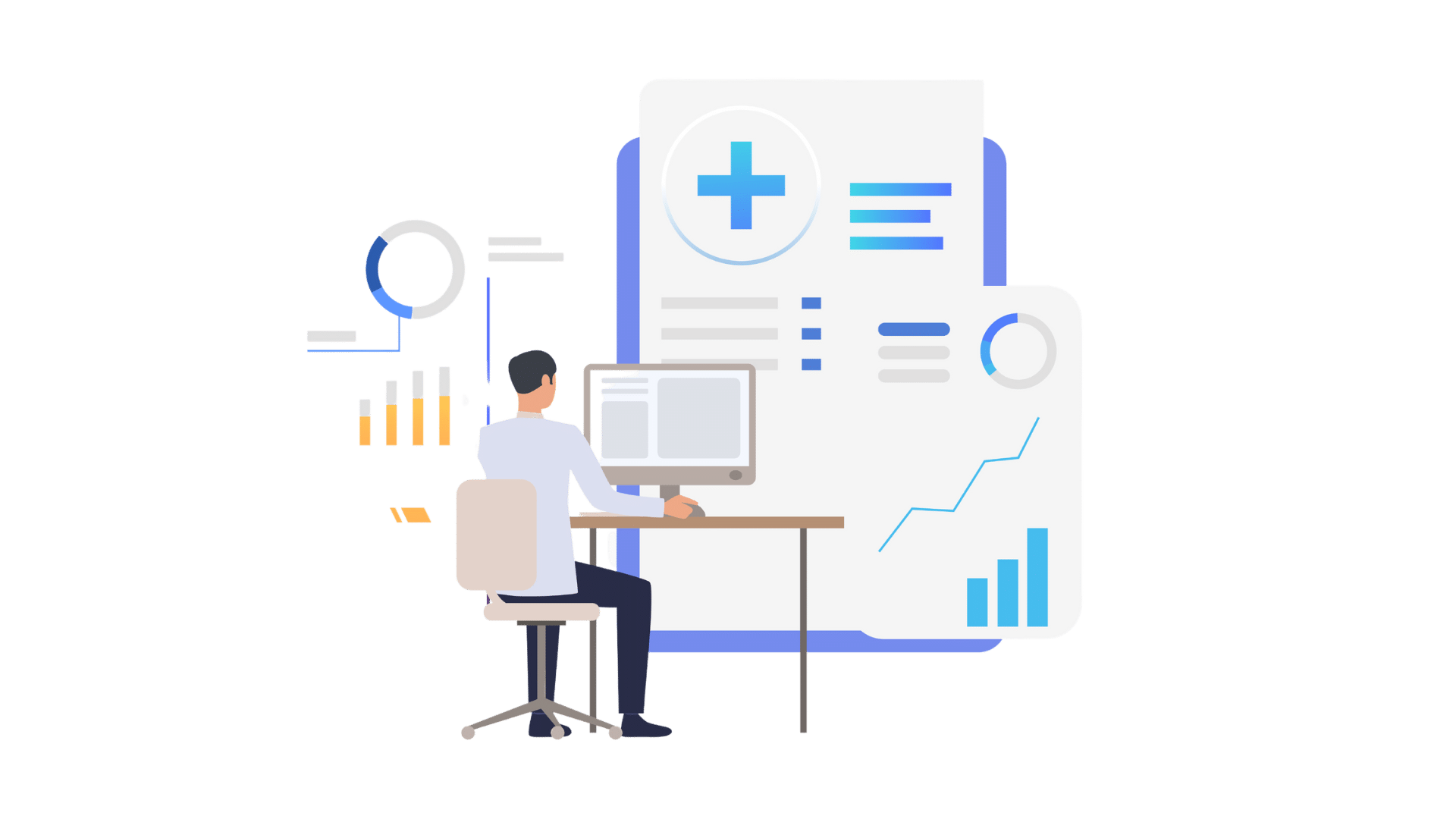
The need for efficient healthcare management is skyrocketing — healthcare facilities struggle with data overload, patient scheduling and administrative tasks. Amid these challenges, healthcare management systems (HMS) have become the go-to solution for hospitals, clinics and other healthcare providers looking to simplify operations, streamline patient care and reduce costs.
An HMS doesn’t just store patient data; it brings together appointments, billing, compliance and reporting in one place, allowing healthcare teams to focus on patient care without worrying about paperwork. So, if you’re facing delays, data chaos or billing issues, it might be time to explore what an HMS has to offer.
A healthcare management system (HMS) is a unified solution that centralises various administrative, financial and clinical functionalities. HMS enables healthcare providers to automate tasks like patient scheduling, billing, inventory management and record-keeping.
Beyond basic functions, an HMS also supports healthcare data security and compliance with privacy regulations like HIPAA, GDPR and DPDPA, often integrating seamlessly with HIPAA compliance management software to ensure full regulatory alignment. Ensuring that an HMS meets HIPAA compliance requirements is a critical first step, helping healthcare providers safeguard patient information while maintaining full legal protection. Most HMSs are customisable, allowing healthcare facilities to add or remove features based on their specific needs.
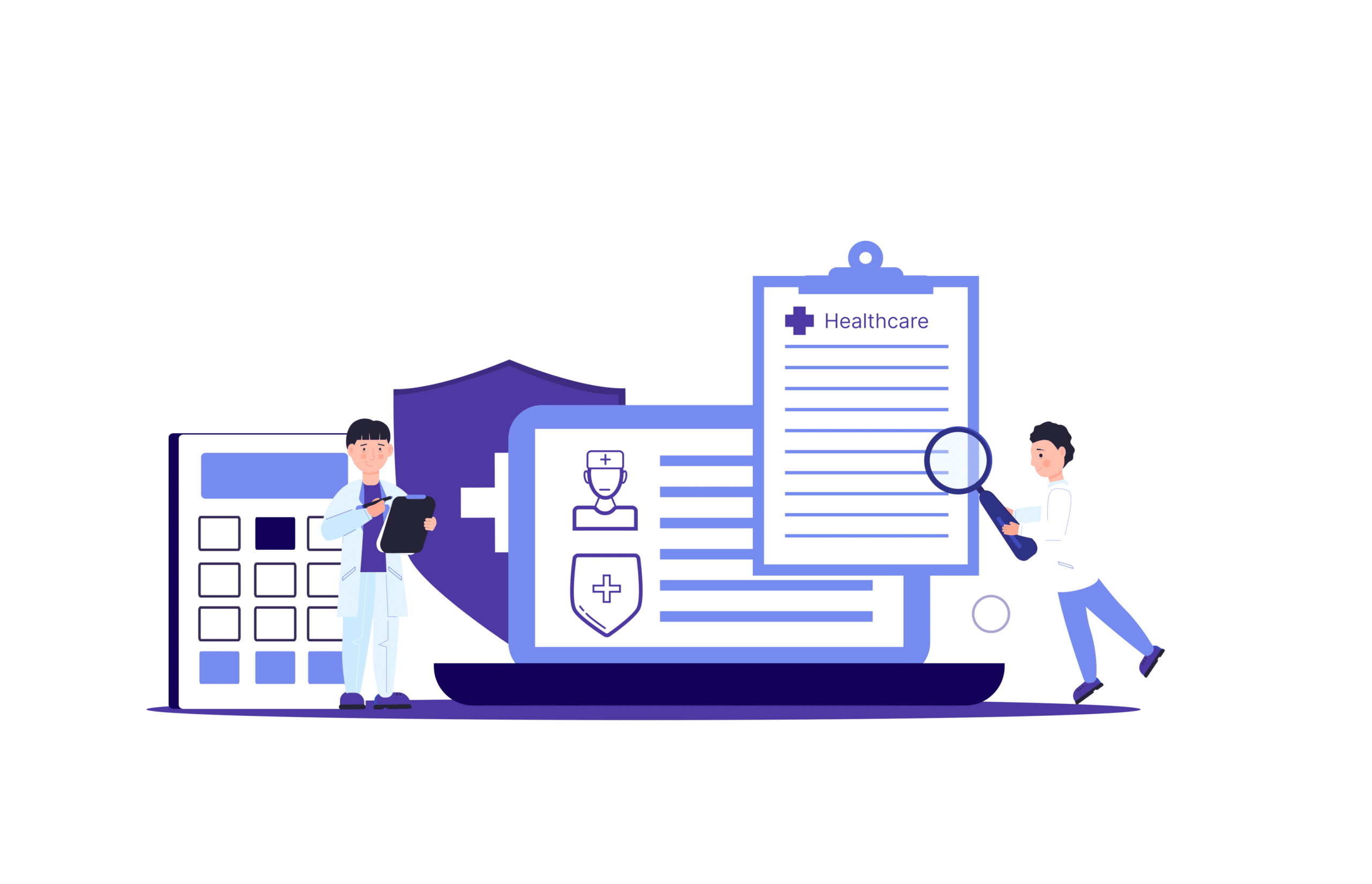
Many facilities rely on a mix of paper records, spreadsheets or outdated software to track appointments, billing and patient data. While these methods may get the job done, they’re prone to errors, inefficiencies and data security risks.
Here’s a closer look at why these traditional approaches fall short:
Paper records: Paperwork can easily get lost or misplaced and manually searching through files takes up valuable time. Paper records also lack privacy and can be vulnerable to breaches, especially when patient information isn’t securely stored.
Spreadsheets: Spreadsheets may be sufficient for basic data, but they’re not built for healthcare management. Keeping patient information, billing and scheduling on separate sheets is prone to error, not to mention difficult to track. So, a minor mistake, like incorrect patient data, can have serious consequences.
Outdated software: Legacy systems may not support newer features like electronic health records (EHR) integration or compliance updates. Outdated software may also lack security measures, exposing patient information to cyber risks. Plus, old systems often don’t allow for smooth data sharing across departments.
How a hospital management system makes life easier
A healthcare management system pulls everything — appointments, records, billing, inventory — into one central platform. This level of integration goes far beyond what paper, spreadsheets or outdated tools can offer.
Hospital management systems bring a range of features designed to make life easier for patients, doctors and admin staff. Let’s dive into the must-haves:
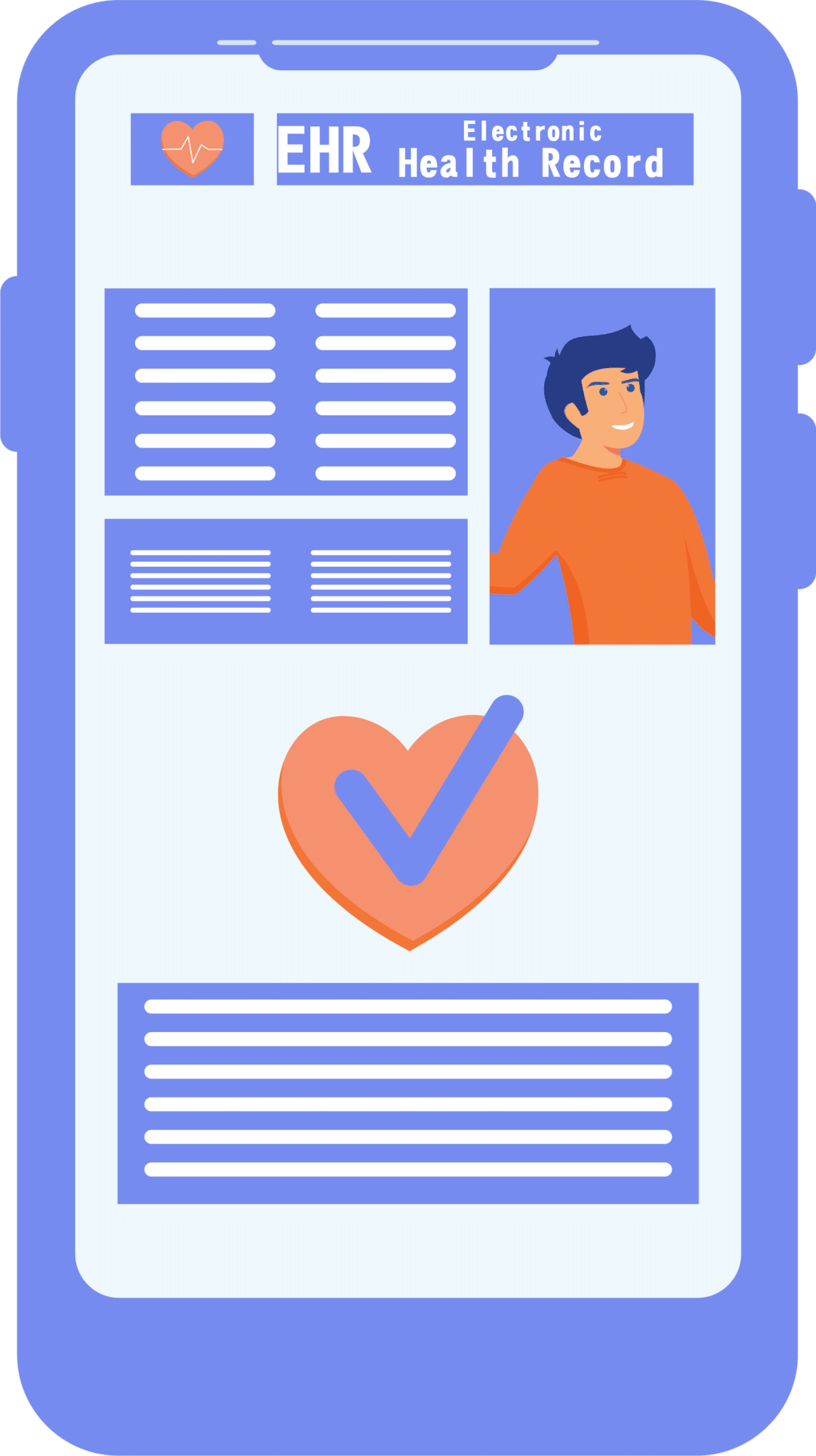
This feature provides a secure, centralised repository for all patient-related data, including medical histories, treatment plans, allergies and lab results.
Instead of flipping through stacks of paper or switching between databases, authorised staff can quickly access complete patient profiles in a few clicks. This streamlined access means faster decision-making, fewer errors and a more personalised patient experience.
Automated healthcare appointment scheduling software features makes it easy for patients to book, reschedule or cancel appointments online. This not only frees up administrative staff but also reduces no-shows with automated reminders sent via WhatsApp, SMS or email.
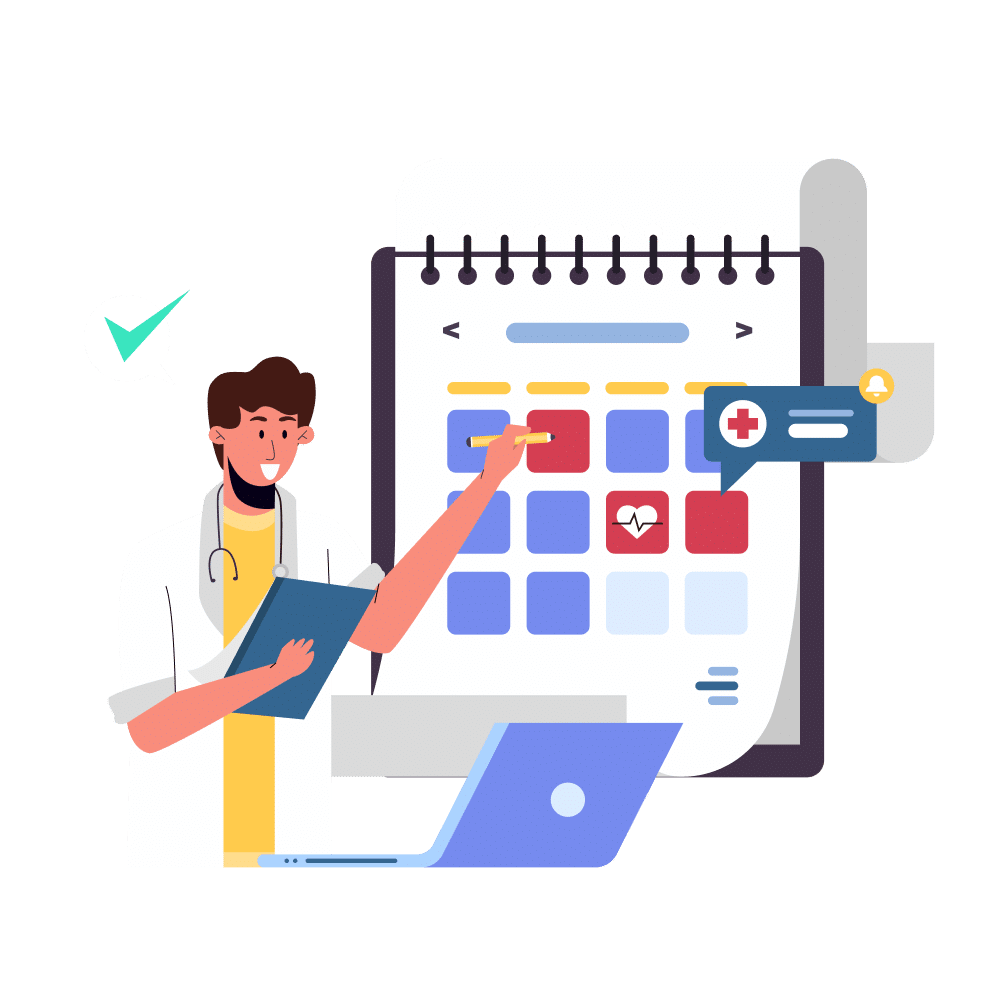
Real-time tracking lets staff monitor appointments, manage waitlists and optimise appointment slots, ultimately reducing patient wait times and improving facility flow.
An HMS takes the complexity out of billing by automating everything from invoice generation to payment processing. It handles insurance claims and keeps track of financial records, minimising errors and ensuring transparency.
Patients can view and settle bills online, while facilities can access financial reports to track revenue and identify any billing issues. This feature helps streamline the revenue cycle, which is essential for maintaining cash flow and reducing administrative burdens.

Inventory management tracks stock levels, expiry dates and usage patterns of medical supplies, medication and equipment. Automated alerts notify staff when items are running low or nearing expiration, preventing stockouts and ensuring that critical supplies are always available.
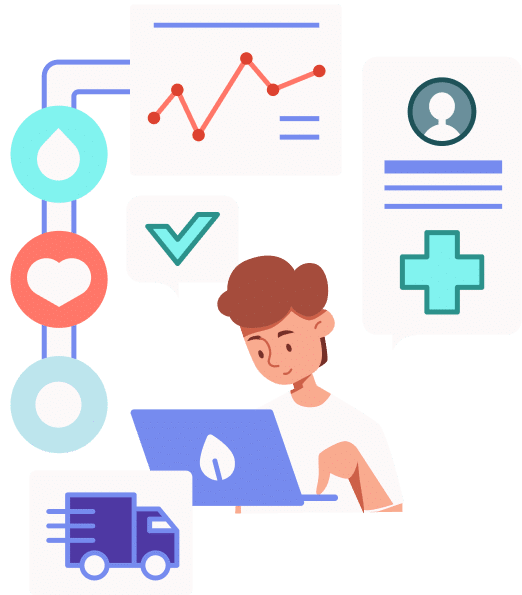
Many systems allow for automatic reordering, further simplifying supply chain management and reducing waste.
This feature enables healthcare providers to order lab tests and radiology services electronically, improving communication between departments and reducing errors. Once tests are completed, results are automatically updated in the patient’s record, accessible to authorised healthcare providers for quick and easy review. This speeds up diagnosis and treatment by providing timely access to accurate lab and imaging data, improving patient outcomes.
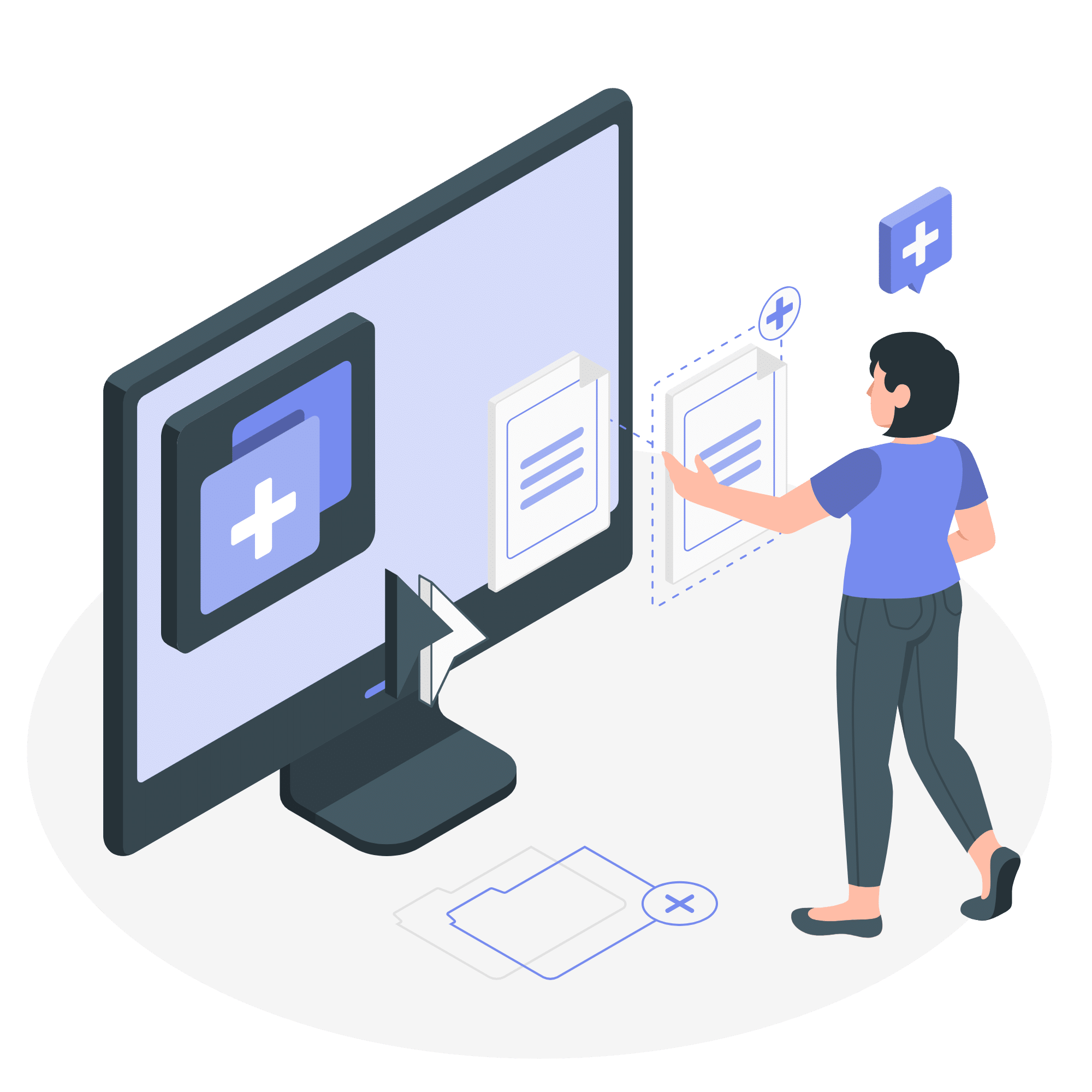
The pharmacy app or module ensures the efficient management of medication dispensing, inventory tracking and restocking processes. It includes barcode scanning for accurate dispensing and keeps tabs on medication quantities and expiration dates. This feature ensures that prescribed medications are available when needed and helps prevent dispensing errors, thereby enhancing patient safety.
Facility management tracks resources like bed availability, occupancy and room assignments, providing a real-time view of the facility’s capacity. This feature is especially helpful in busy hospitals, as it allows staff to quickly assess and allocate resources. Patients are assigned to available rooms or beds efficiently, enhancing overall facility flow and improving patient satisfaction.

A staff management module helps HR teams track employee schedules, job roles, credentials and attendance. This feature can support workforce management and planning, allowing administrators to ensure adequate staffing levels for each department. Additionally, it helps in performance tracking and ensuring regulatory compliance regarding certifications and credentials.
Handling insurance claims can be time-consuming, but the claims management feature automates this process by organising patient insurance details, claim histories and documentation requirements. By simplifying insurance verification and claims processing, an HMS minimises delays in reimbursements and reduces the likelihood of claim denials.
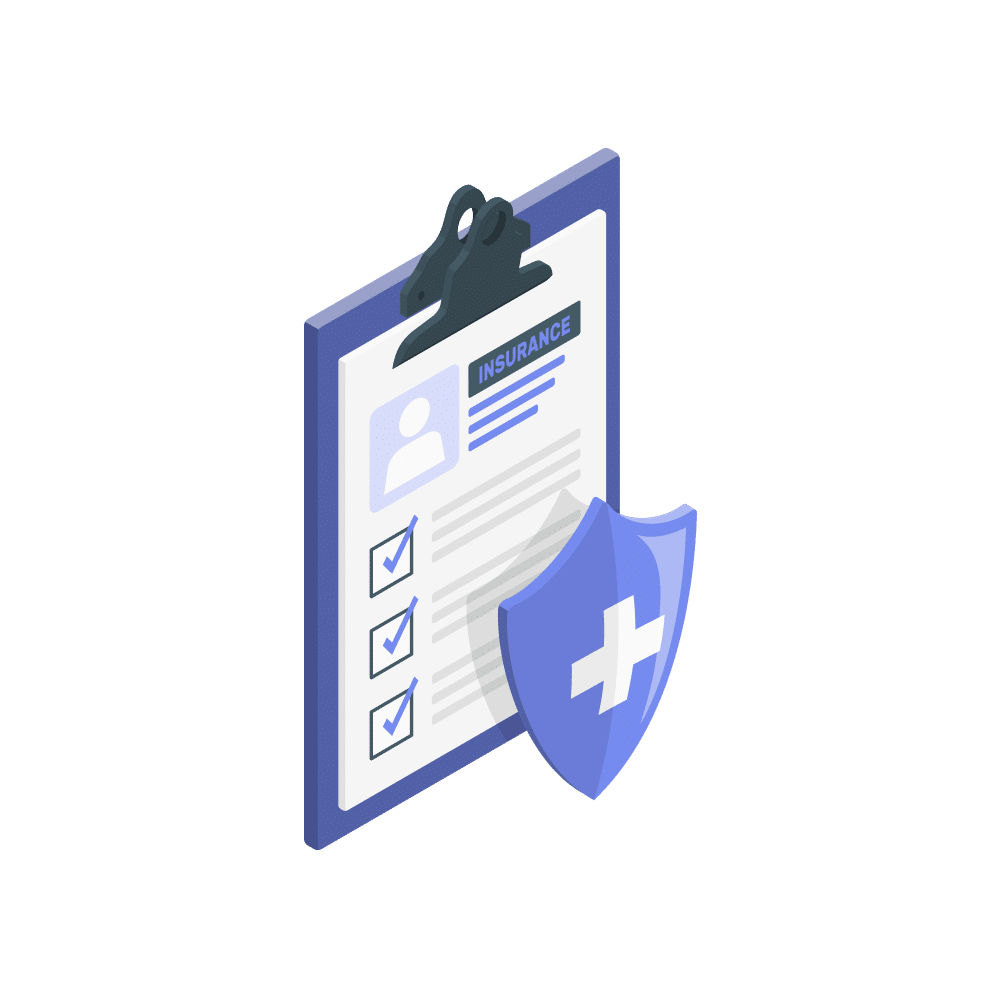
With reporting and analytics tools, an HMS collects and analyses data across all departments, offering insights into patient trends, operational efficiency and financial health.

Customisable dashboards and reports allow administrators to identify performance bottlenecks, improve resource allocation and make informed, data-driven decisions. This feature empowers facilities to adapt to changing needs and continuously improve patient care and operational outcomes.
The patient portal provides a secure platform for patients to access their medical records, view test results, manage appointments and communicate with healthcare providers. This self-service option enhances patient engagement by allowing them to take an active role in their healthcare.
The portal can also be used to send appointment reminders, educational content and follow-up care instructions, improving patient satisfaction and health outcomes.
Mobile app support allows both staff and patients to access HMS features on the go, whether it’s managing appointments, viewing patient records or checking schedules.
For clinicians, this feature means faster access to patient information, even outside the facility, enabling timely care decisions. For patients, mobile access provides convenience and flexibility, making it easier to stay engaged with their healthcare.
Implementing a healthcare management system (HMS) in your organisation brings a number of tangible benefits such as better patient care, reduced employee workload and overall efficiency gain in healthcare operations. Here’s what you can expect:
Patients want seamless, stress-free interactions with their healthcare providers. With an HMS, patients can easily book appointments, receive appointment reminders and access their medical records securely. This leads to a smoother experience and helps build trust in the care provided.
An HMS reduces the clutter of manual processes, from appointment scheduling to billing. With everything centralised and automated, staff spends less time on repetitive tasks and more on patient care.
The system helps avoid errors, minimises administrative bottlenecks and keeps daily operations running smoothly.
One of the greatest benefits of an HMS is access to real-time data. By gathering insights into patient trends, billing patterns or inventory levels, healthcare administrators can make data-driven decisions that improve both patient outcomes and operational efficiency. Accurate data at your fingertips allows for quicker, more informed choices.
For patients undergoing treatments that require close monitoring, such as weight management medication, an HMS can track prescriptions, adherence, and patient progress. This enables healthcare providers to make necessary adjustments, improving overall treatment effectiveness while ensuring patient safety.
With privacy regulations like HIPAA, GDPR and DPDPA (India), protecting patient data is critical. An HMS comes with built-in security measures, such as encryption and access controls, ensuring that sensitive information remains secure. This reduces the risk of breaches and keeps your facility compliant with all relevant data privacy and protection laws.
Implementing the best web filtering software can further strengthen security by preventing access to malicious sites and restricting unauthorized data transfers. Also, integrating a Brave extension for VPN adds an extra layer of privacy to safeguard patient information
An HMS eliminates much of the manual work that can lead to costly errors and wasted time. Automated billing, inventory management and data entry cut down on overheads, allowing facilities to operate more profitably. Over time, these efficiency gains can lead to significant cost savings.
Selecting the ideal healthcare management system (HMS) is a critical decision for any healthcare facility, as it directly impacts daily operations, patient care and even staff morale.
With numerous options available, understanding what to look for in an HMS is essential to finding the right fit for your facility’s unique needs. Here’s a guide to help you make an informed choice:
Consider current challenges: Start by listing the main issues your facility faces — whether it’s long patient wait times, inefficient billing or data security concerns. Knowing the gaps helps you zero in on an HMS that addresses these issues specifically.
Scale and specialisation: Different facilities have different needs. A small clinic may require a simpler system than a multi-specialty hospital, which may need more advanced features like telemedicine, facility management or lab integration.
Existing systems and software: If your facility already has software for billing, EHRs or other operations, ensure that the new HMS can integrate seamlessly with these systems. Compatibility reduces the hassle of data transfer and keeps workflows connected.
APIs and customisation: Look for an HMS with customisable APIs (application programming interfaces), which make it easier to mould the software to your facility’s unique needs. An adaptable system ensures long-term usability as your facility’s requirements evolve.
Ease of use: An HMS should be easy for all staff members to navigate, from administrators to clinicians. A complicated interface can discourage usage and increase the chances of errors.
Training and onboarding: Choose a vendor that offers comprehensive onboarding and ongoing support. This is crucial for a smooth transition, especially if your team is new to digital management systems. Some vendors offer online tutorials, user manuals and even in-person training sessions.
Security should be at the top of your priority list, as patient data is highly sensitive. Look for an HMS with robust encryption, user authentication and regular security audits to protect against breaches.
Room for growth: As your facility grows, so will your operational needs. An HMS that offers modular add-ons and customisation options will allow you to expand or adjust the system as required, without having to switch to a new provider.
Cloud-based vs. on-premise: Cloud-based systems are typically more scalable and easier to maintain than on-premise systems, which require more internal IT resources. Cloud solutions also allow for remote access, which can be beneficial for facilities with multiple locations or those offering telemedicine.
24/7 support options: Technical issues can disrupt care, so having access to round-the-clock support is crucial. Check if the vendor offers various support channels, like chat, phone or email, for quick and reliable assistance.
Reputation and user feedback: Research vendor reviews and seek feedback from other healthcare providers who use the system. A reputable vendor with positive feedback from similar facilities often provides better service and product quality.
Transparent pricing: Choose a vendor with clear, upfront pricing to avoid hidden costs. Pricing structures may vary, with some charging per feature, user or data volume. Make sure the chosen system fits comfortably within your budget.
Long-term savings: While initial costs can be high, consider the system’s ROI. Features that improve billing accuracy, reduce administrative workload and enhance patient satisfaction can save money over time, helping you recoup your investment faster.
In today’s healthcare landscape, efficiency, security and patient-centred care are non-negotiables. A well-chosen healthcare management system (HMS) can provide all this and more, transforming your facility’s operations inside out.
By streamlining tasks like patient scheduling, billing and inventory management, an HMS allows staff to focus more on quality care and less on administrative hurdles. An HMS also acts as a healthcare CRM and streamlines patient interaction and management as well.
With the right system in place, you can enhance the quality of care, boost operational efficiency and create a more secure, responsive healthcare experience for everyone involved.


© Copyright 2025 Telecrm.in - All Rights Reserved • Privacy Policy • T&C
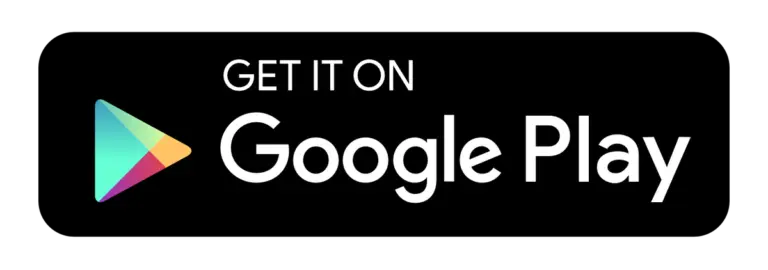

© Copyright 2025 Telecrm.in - All Rights Reserved • Privacy Policy • T&C